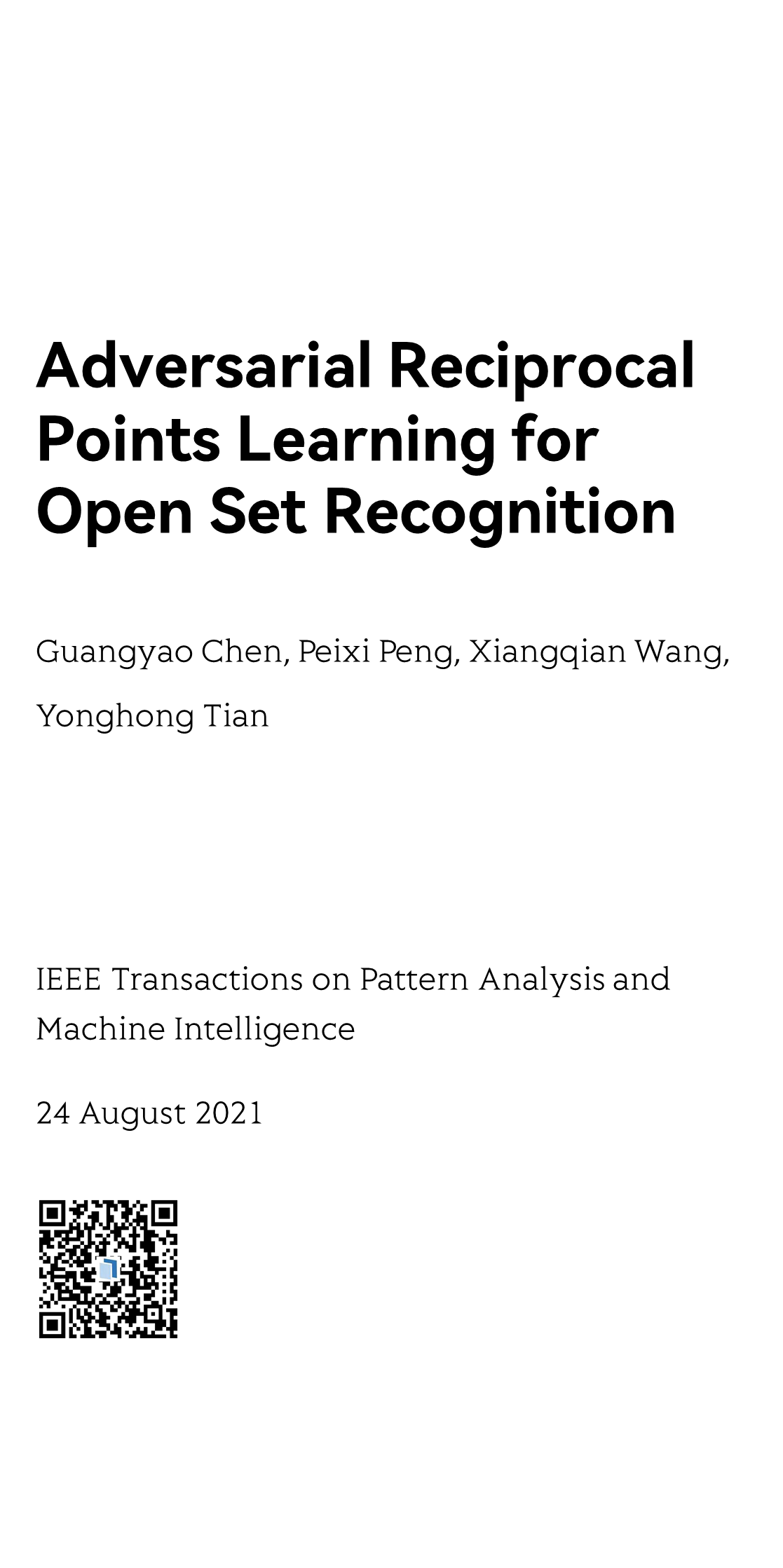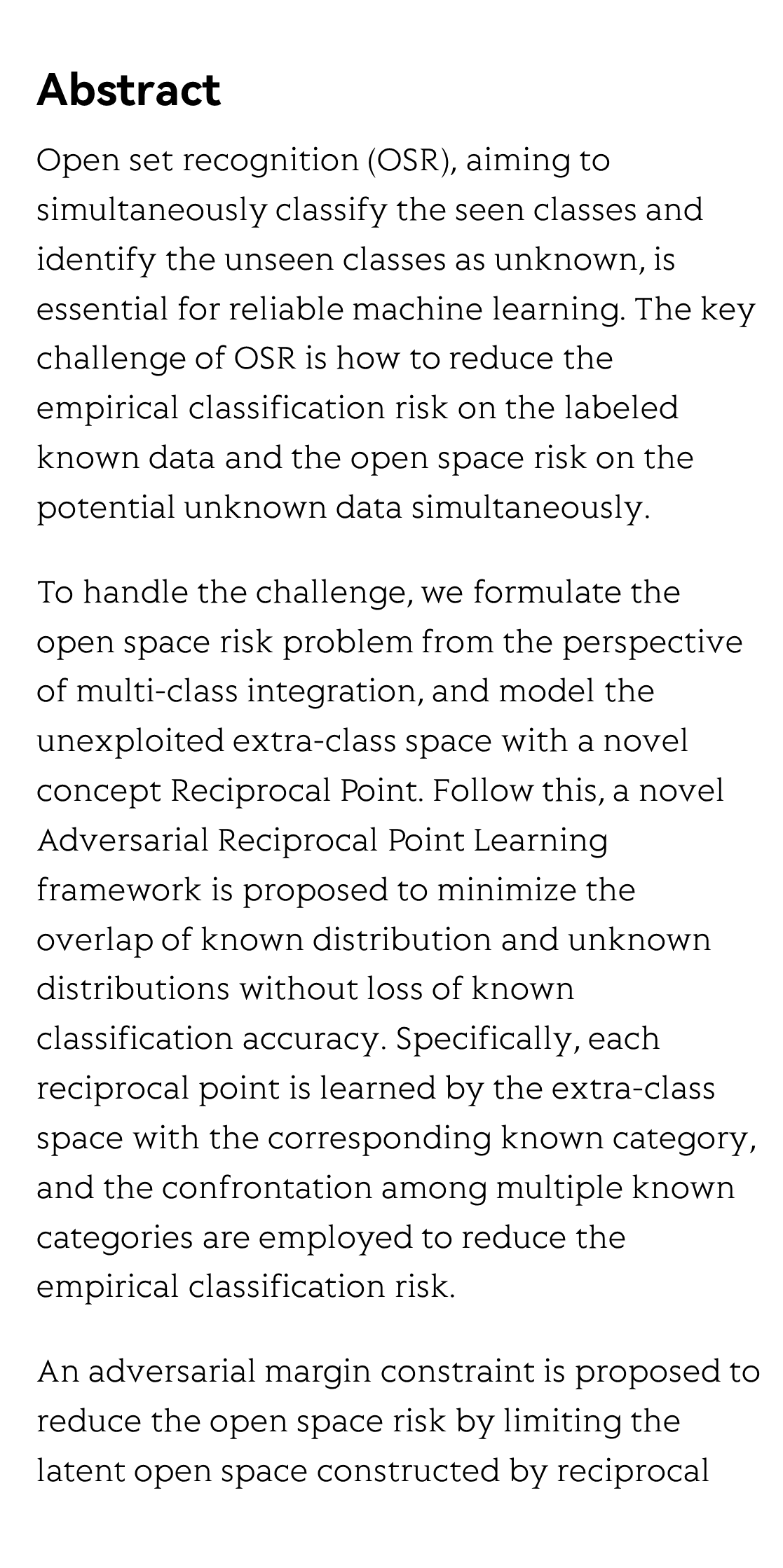(Peer-Reviewed) Adversarial Reciprocal Points Learning for Open Set Recognition
Guangyao Chen 陈光耀 ¹, Peixi Peng 彭佩玺 ¹, Xiangqian Wang ², Yonghong Tian 田永鸿 ¹
¹ School of Electronics Engineering and Computer Science, Peking University, 12465 Beijing, Beijing, China, 100871
中国 北京 北京大学信息科学技术学院
² AI Application Research Center, Huawei Technologies Co Ltd, 115371 Shenzhen, Guangdong, China
中国 广东 深圳 华为技术有限公司 AI应用研究中心
IEEE Transactions on Pattern Analysis and Machine Intelligence, 2021-08-24
Abstract
Open set recognition (OSR), aiming to simultaneously classify the seen classes and identify the unseen classes as unknown, is essential for reliable machine learning. The key challenge of OSR is how to reduce the empirical classification risk on the labeled known data and the open space risk on the potential unknown data simultaneously.
To handle the challenge, we formulate the open space risk problem from the perspective of multi-class integration, and model the unexploited extra-class space with a novel concept Reciprocal Point. Follow this, a novel Adversarial Reciprocal Point Learning framework is proposed to minimize the overlap of known distribution and unknown distributions without loss of known classification accuracy. Specifically, each reciprocal point is learned by the extra-class space with the corresponding known category, and the confrontation among multiple known categories are employed to reduce the empirical classification risk.
An adversarial margin constraint is proposed to reduce the open space risk by limiting the latent open space constructed by reciprocal points. Moreover, an instantiated adversarial enhancement method is designed to generate diverse and confusing training samples. Extensive experimental results on various benchmark datasets indicate that the proposed method is significantly superior to existing approaches and achieves state-of-the-art performance.
Separation and identification of mixed signal for distributed acoustic sensor using deep learning
Huaxin Gu, Jingming Zhang, Xingwei Chen, Feihong Yu, Deyu Xu, Shuaiqi Liu, Weihao Lin, Xiaobing Shi, Zixing Huang, Xiongji Yang, Qingchang Hu, Liyang Shao
Opto-Electronic Advances
2025-11-25
A review on optical torques: from engineered light fields to objects
Tao He, Jingyao Zhang, Din Ping Tsai, Junxiao Zhou, Haiyang Huang, Weicheng Yi, Zeyong Wei Yan Zu, Qinghua Song, Zhanshan Wang, Cheng-Wei Qiu, Yuzhi Shi, Xinbin Cheng
Opto-Electronic Science
2025-11-25





